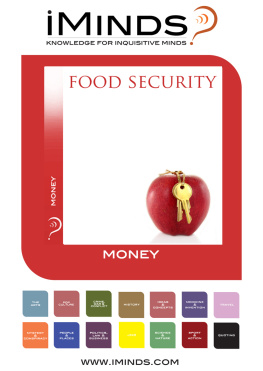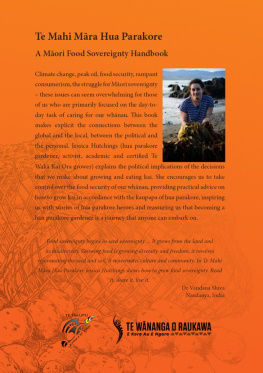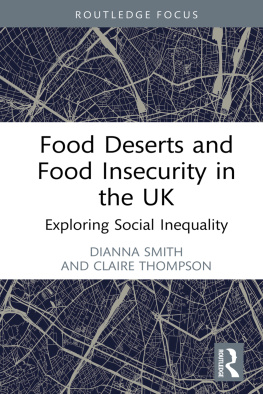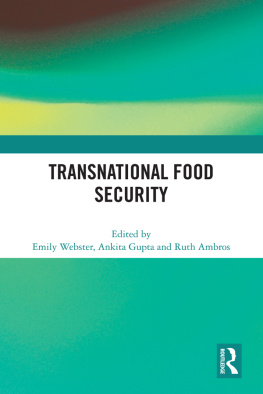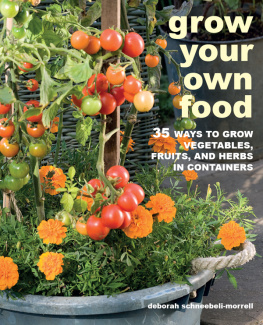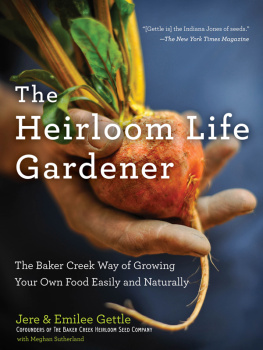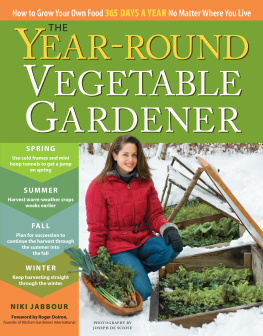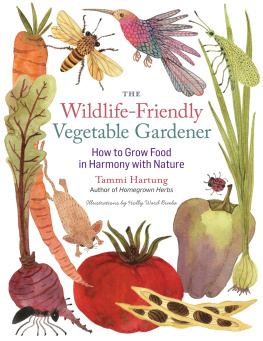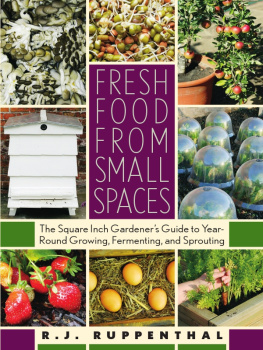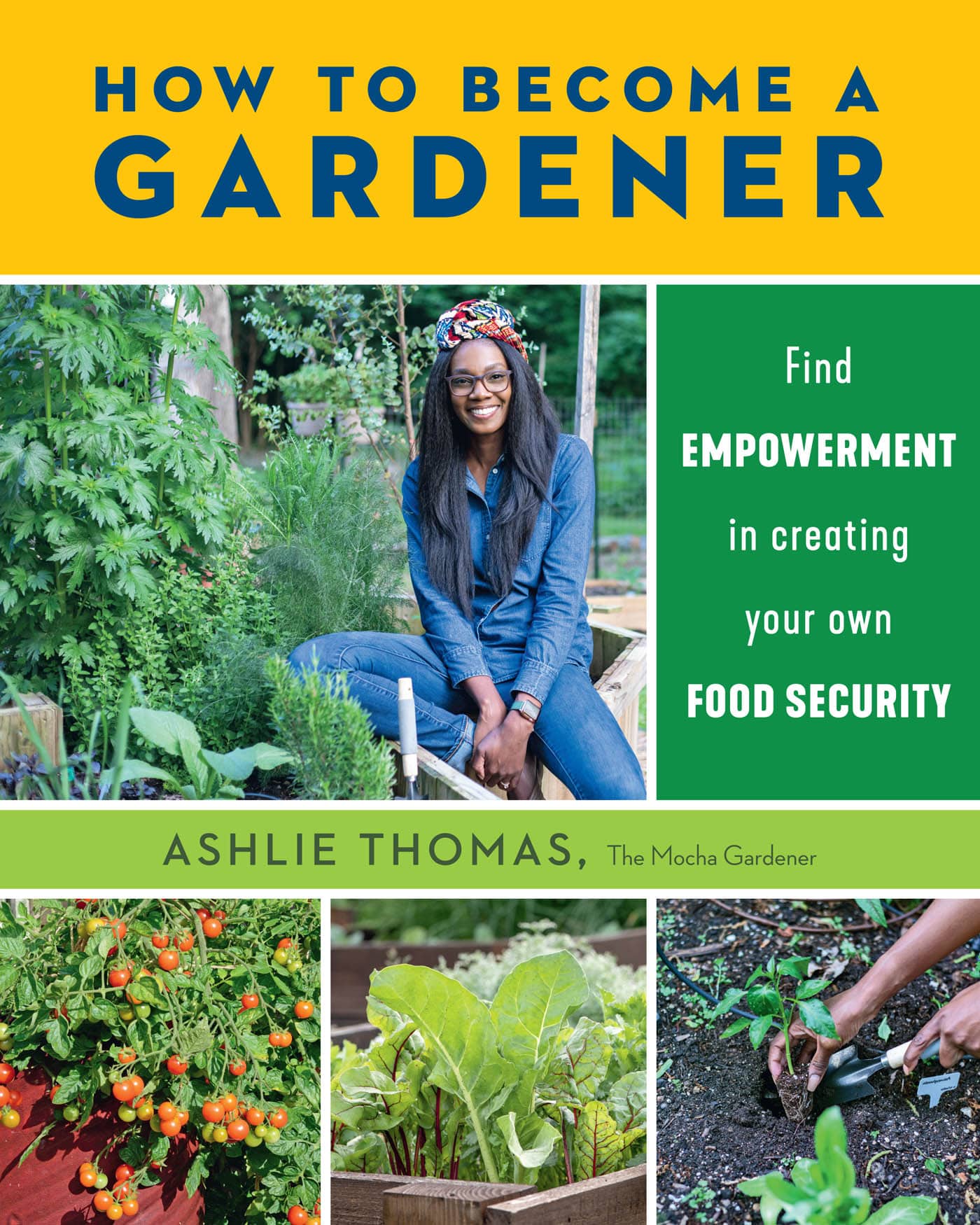Contents
Page List
Guide
Cover
PRAISE
Bursting with encouragement, information, and heart and woven together through colorful photography, How to Become a Gardener is an inspiring roadmap that will guide you to become a conscious and grateful steward of your burgeoning garden, both inside and out.
Meg Cowden, @seedtofork, author of Plant Grow Harvest Repeat
How to Become a Gardener covers the basics of how to start a garden from scratch for the first-time gardener, provides advice and emotional support to help through the challenges, and dives into the philosophy behind why gardening can transform our lives in the most beautiful of ways. With this book we can not only transform our lives and take control of our health but also overcome food insecurity and create resilient communities. Unlike many gardening books, Ashlie is inclusive of our most vulnerable communities, making this book a true solution for many who are often left out of the conversation. To grow our own food is to begin the transformation of ourselves and our communities. How to Become a Gardener is the tool of empowerment that is needed by so many to begin this transformation.
Rob Greenfield, environmental activist and author of Food Freedom
Absolute must-read! This book perfectly highlights the value of food security and health. It gives the tools to empower anyone to change their lives through food. I will be recommending this book to all my patients!
Cierra Allen-Dixon, MD
Ashlies book is a timely, in-depth look at gardening as a way to fight food insecurity and provides encouragement to grow in any environment with limited space to meet cultural food needs. She offers a thoughtfully written, well-researched beginners guide to gardening as a means to equalize access to healthy, nutritious foods. Her book is truly a blueprint for increasing access to healthy foods and combating the food swamps so prevalent today.
Claudia Weekes, MS RD LD, @theorganizedhomemaker
Ashlies approach to creating your own food security is so critical and empowering in this time when so many lack access to adequate healthy food and have lost touch with the wonders of the natural world. This book is an outstanding but practical guide to how each of us can contribute to our own destiny and to the betterment of society by planting seeds in our backyard or even in a pot on our back porch.
Dr. Alice S. Ammerman, professor of nutrition and director of the Center for Health Promotion and Disease Prevention, University of North Carolina at Chapel Hill, founder of Equiti Foods
How to Become a Gardener has everything you need to not just grow your own food but to become a steward of community and food justice. Ashlies passion and perspective are so beautifully encapsulated in this book, and her lived experience shows just how intertwined our food system is to our own empowerment. It combines science with practical tips and stories from her own green journey as she explores what it means to nurture the gardens within us.
Nick Cutsumpas, author, television personality, and founder of Farmer Nick
CONTENTS
Growing food gives us the ability to choose and consume what is best for our bodies and with greater intentionality and awareness.
INTRODUCTION
The Journey to Becoming a Gardener
Gardening is a vital part of my well-being and journey to living a full and healthy life. Several years ago, my husband Tyler and I began our gardening journey on our one-acre North Carolina homestead. Together, we dreamed, designed, and built this garden from a blank slate, meaning nothing but unleveled grass and dense forest. Our modest 1950s suburban home in Graham is nestled between three major cities: Chapel Hill, Durham, and Greensboro. Though we enjoy the charm and calm nature of this small city, we are a bit of distance away from cities with greater food diversity. Interestingly, this is not the first time I have experienced a lack of nutritional diversity. After spending many years in a deeply rural South Carolina town that lacked sufficient access to nutritious foods, I realized one way to address this barrier may be through learning how to grow my own food and educating others on what quality foods consist of and from where they originate.
This experience of living in rural South Carolina was what many may call a turning point for me. I began to understand that the growing issue of food security is a continuum with nonlinear variables for its cause. The face of this complex issue is not always clear, but the implications are almost always reflective in the health outcomes of communities, especially the most vulnerable ones. The challenges associated with food security are undeniably complicated and multilayered, but growing up I was told that sometimes the best way to eat away at big problems is through taking small, gradual bites.
The journey to becoming a gardener embodies a holistic evolution of the mind, body, and spirit. I welcome this transformation with open arms and gratitude.
With a bit of imagination and planning, you can design and create your own food-filled haven using the space you have.
Over time, I developed a profound desire to disrupt the local food systems in communities that lacked access to wholesome and nutritious sustenance that the body needs to thrive. You see, I wanted more for my family and more for my community, so I figured one small step toward this ambition of empowering and creating greater food autonomy and resilience would be through guiding individuals to explore, grow, and connect with delicious foods produced by their own hands. I believe that gardening presents the opportunity to do just that.
A friend who is a veteran gardener told me, Gardening is a never-ending experience of enlightenment, and through this journey I am willing to bet that you may recognize an enlightenment will take place within yourself as well. I can honestly say that as I embarked upon the quest of learning to grow my own food, I became more conscious of local food systems, and the health of myself, those around me, and the environment. Additionally, while constructing our garden, Tyler and I sought to build a haven that served as a spiritually enlightening place to ground and regenerate, not just for ourselves, but for anyone who entered the space. I truly believe that gardens can be places that promote strength and healing, and we wanted our space to do just that. I am also thankful that our garden gives us an opportunity to connect with and give honor to what we feed ourselves and those around us (human and nonhuman). Even the mere act of caring for a garden has allowed me to foster a lovely holistic and symbiotic relationship with natureI nurture the green life around me, and it nurtures me in return.


